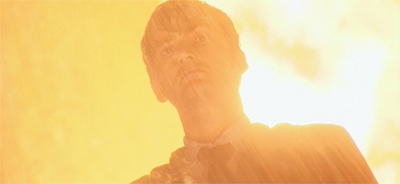To celebrate the fiftieth anniversary of the longest-running science-fiction show in the world, I’ll be taking weekly looks at some of my own personal favourite stories and arcs, from the old and new series, with a view to encapsulating the sublime, the clever and the fiendishly odd of the BBC’s Doctor Who.
The Runaway Bride originally aired in 2006.
What, there’s like a secret base hidden underneath a major London landmark?
Oh, I know. Unheard of.
– Donna and the Doctor present Doctor Who 101
The Runaway Bride is really more indicative of a Davies-era Christmas Special than The Christmas Invasion was. The Christmas Invasion came with so much narrative baggage to unpack that it even spilt over into the Born Again scene that aired as part of Children in Need. While The Runaway Bride does have to deal with some of the fallout from Billie Piper’s departure in Doomsday, it’s a much more stand-alone piece of Doctor Who.
It’s a very light piece of television, but that’s really the ideal kind of Doctor Who to air as part of the BBC’s Christmas line-up.
Filed under: Television | Tagged: Atkins Diet, bbc, Billie Piper, Catherine Tate, christmas, Christmas Invasion, Davies, doctor, DoctorWho, Donna, Donna Noble, england, Feng Shui, London, Lost or Missing, People, Practitioners, Religion and Spirituality, Runaway Bride, Taoism, tardis | 2 Comments »





























